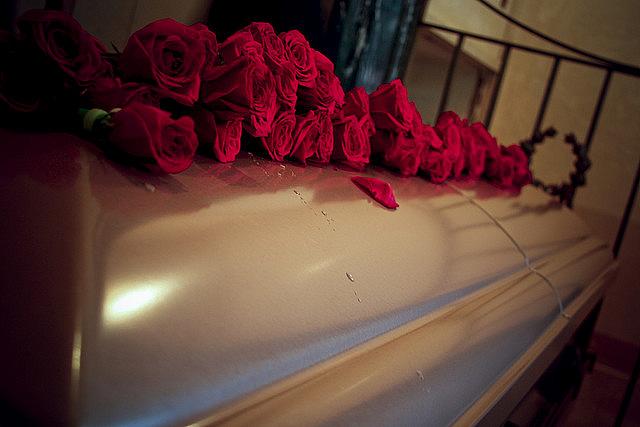A Public Death: Health Writers Can Show Value Of Open Access to Death Certificates

 Health writers, I need your help.
Health writers, I need your help.
To show the world the value of making death records public in all 50 states, I need to show people good examples - and bad ones - of how they can be used to inform the public on important health and health policy issues.
I am hoping health writers in all 50 states will do one of two things. First, share with me the work they've done to gain access to death certificates for stories. Second, request a copy of a death certificate for a story or a newsworthy subject and tell me what happened as a result.
Chelsea Conaboy at the Boston Globe already knocked one state down. She saw Antidote's post on death certificates this week and wrote her own piece, highlighting the need for death certificates to investigate medical errors:
Globe reporter Liz Kowalczyk wrote a series of stories this year about the hundreds of people who died between 2005 and 2010 when their caregivers failed to respond to alarms on cardiac monitors. On Sunday, she reported that more than 100 people who depend on ventilators have died since 2005 when people failed to respond to the beeps meant to alert them to a problem.
Then Conaboy took it a step further. She went and found out how hard it would be to get a copy of a death certificate in Massachusetts. She wrote that, "many states restrict public access to death certificates."
Not Massachusetts. Anyone can get access to anyone else's death certificate, for an $18 fee plus the $9-per-hour cost of research time. The bigger issue here seems to be how complete they are. Not all physicians detail a person's cause of death.
Conaboy also provided two great examples of why death certificates themselves can be the focus of a story. She contrasted two death certificates that showed similar causes of death but provided much different degrees of detail.
In one case, a doctor essentially gave a road map of how someone died, showing that three years ago the patient was diagnosed with metastatic endometrial cancer. That led to an intestinal obstruction about a month prior to the patient's death and then kidney failure one week before the death.
In the other case, the doctor simply wrote "metastatic cancer" and that "paraplegia" had contributed to the cause. Given that there are hundreds of types of cancer, this is a little like saying the person died from a disease. It would be of little use to public health researchers and no use to a reporter trying to write, for example, about a cluster of lung cancer deaths near a chemical plant.
Of course, I'm not oblivious to privacy concerns, as Thomas Hargrove at Scripps Howard News Service has so ably illustrated in his work on identity theft. I'm not persuaded, though, that simply banning access to public records is the best way to solve a fraud problem. This may sound akin to the "guns don't kill people" argument. If you are a card-carrying member of the NRA or a Ted Nugent fan, then I hope you'll agree with me. If not, then maybe seeing the value of death certificates when used responsibly by reporters in the public interest will be more persuasive.
The Reporters Committee on Freedom of the Press has a breakdown of publicly available records on its website in its Open Government Guide. You can look up records laws by state or search for "death certificates" and see what state statutes say. If you're not familiar with your state's public records guidelines, then you should give it a look.
For example, in Oregon, death certificates are not generally made available to the public, but I have asked a health writer there to request the death certificate for a rather famous public official who recently died. I'd like to see the rejection letter the writer receives after requesting the death certificate. What specific language or precedents are agencies using to justify secrecy? Also, you never know that a record is off-limits until you ask. I have legally obtained copies of many records deemed off-limits over the years.
As Conaboy's experience shows, simply asking for the records can yield interesting information for future stories and can highlight the importance of making death certificates public where they are currently kept secret.
Share your thoughts in the comments below. Send me your death certificate stories – and the certificates themselves if you have them – to askantidote@gmail.com. And you can follow me on Twitter @wheisel.
Photo credit: Jonelle B. via Flickr
